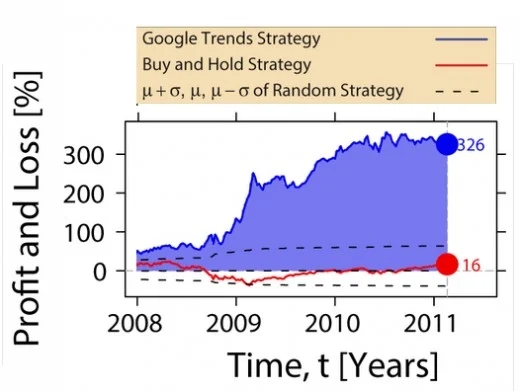

In order to show how the data can be used, we wrote a simple algorithm.

This tells us that our "Google Sentiment Index" is measuring nearly the same information as the IMX index, just in a vastly different way. The index data above corresponds to the newly created "Investor Movement Index" by TD Ameritrade that tracks new brokerage accounts and account positioning:Īs you can see, there is a corresponding spike toward the end of 2016 that grew in strength before falling back to its long run average following the February correction. The index does not completely trail market performance, rather it reflects retail investor sentiment. However, over the stretch in this bull market, the index has become much more useful. To create a sentiment index, we will take the difference between the "bull" and "bear" searches and give the data a 6-month moving average to filter out random noise.ĭata source: Google Trends, Google FinanceĪs you can see, our index was not a strong indicator until after the recession as Google search volume was considerably lower then. It is clear that Google search volume reacts to the markets, the question remains as to whether we can use Google Trends to predict the markets. There is a large spike during the worst sell-off months in 2008, and again this January as the S&P 500 climbed 8% in a few weeks. Here is both the bullish and bearish search volume since 2004:Īs you can see, the two data closely mirror each other. Here is the same as above for these "bearish" search requests: When investors become worried, they will often search "sell stocks", "how to short sell" and "how to sell stocks".

To create a more accurate "google search sentiment" index, we will gather the same data for the bearish side of Google search volume. Here is the monthly data we collected on these keywords since 2004:Īs you can see, there are large spikes both during sharp market rallies as in January of this year and during large sell-offs as in 2008. Doing so will lead to a few sources on "how to invest" and a few stock tips and, a week or two later they will buy stocks. Often such investors are responding to the market itself their friend touts about how much money they recently made in the market and said new investor takes to Google. When a new investor enters the market, it often begins with a Google search of "what stocks to buy" or " top stocks". When users search terms such as "how to short sell", it is a signal more retail investors are becoming worried and that risk-off stocks should outperform.

When more users search for keywords such as "stocks to buy", risk-on stocks should outperform risk-off stocks. We hypothesize that retail investor sentiment is correlated to Google search volume. It is most often used to see whether Kim Kardashian or Taylor Swift is trending more, but we believe it has great use for active investors and research analysts. For those of you who have not heard of Google Trends, it is a tool produced by Alphabet/Google ( GOOG) ( GOOGL) that allows users to see search volume and geographic search concentration for a wide range of keywords.


 0 kommentar(er)
0 kommentar(er)
